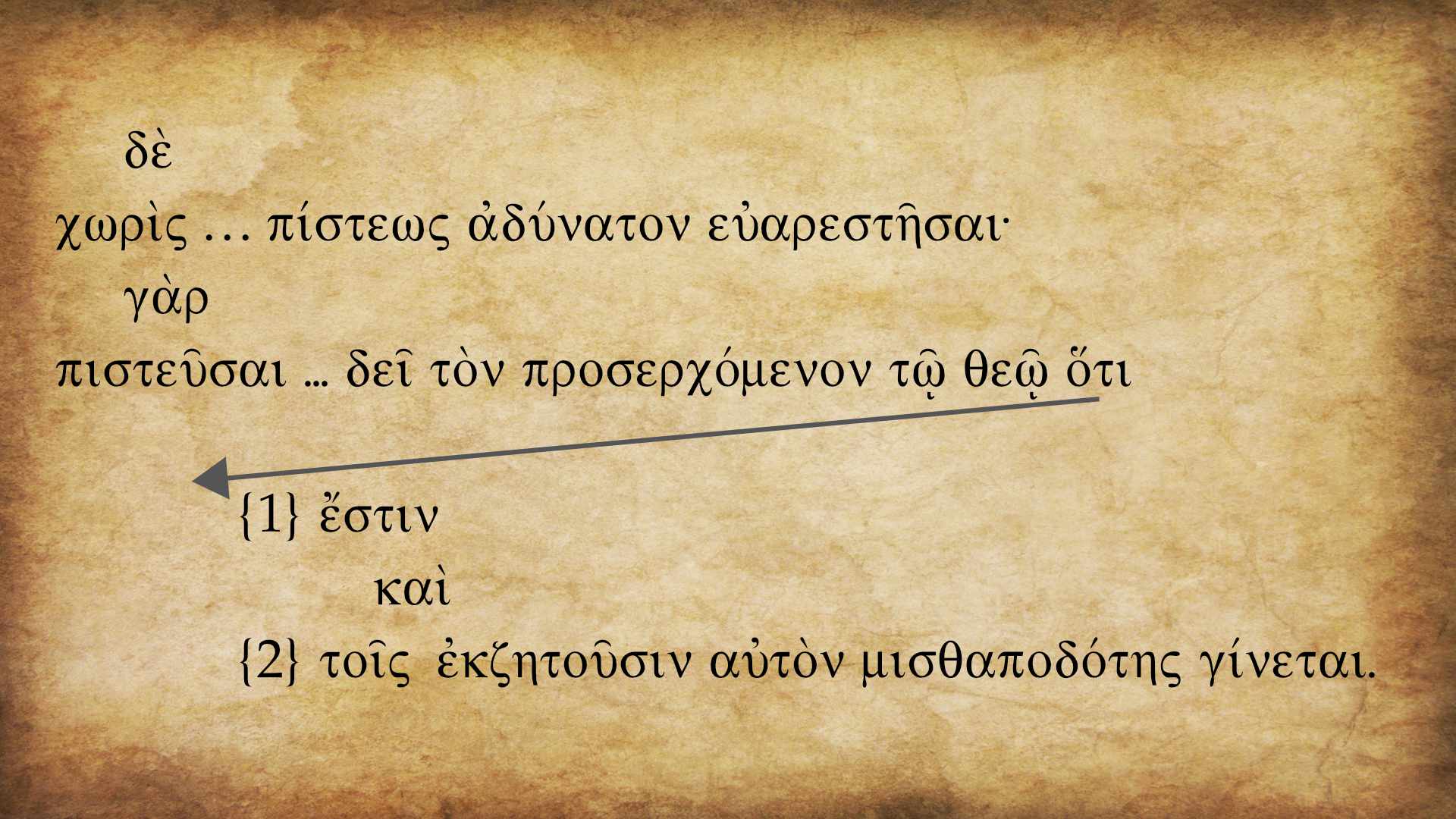For an Informed Love of God
You are here
Two Helpful Techniques in Translating Greek (Heb 11:6)
The other day Paul asked about the two-fold requirement in Heb 11:6, and it is a great verse to illustrate two techniques in translating Greek that have helped me through the years.

Note: you can watch this blog on YouTube
Here’s the verse. χωρὶς δὲ πίστεως ἀδύνατον εὐαρεστῆσαι· πιστεῦσαι γὰρ δεῖ τὸν προσερχόμενον τῷ θεῷ ὅτι ἔστιν καὶ τοῖς ἐκζητοῦσιν αὐτὸν μισθαποδότης γίνεται. “And without faith it is impossible to please him, for it is necessary for the one who approaches God to believe that he exists and he is a rewarder of the one seeking him.”
Technique #1: Rearrange
Sometimes when a verse is a little confusing, I like to rearrange the order of the Greek to English order, putting subjects before verbs, direct objects afterwards, etc. Sometimes it is helpful to insert implied words. The first phrase is pretty easy, except that you have to supply a verb and a direct object for the infinitive εὐαρεστῆσαι.
χωρὶς δὲ πίστεως ἀδύνατον εὐαρεστῆσαι
δὲ χωρὶς πίστεώς (ἐστιν) ἀδύνατον εὐαρεστῆσαι (αὐτόν)
And without faith (it is) impossible to please (him)
The second part is a little trickier because you need to indicate that the accusative of respect is functioning as the subject of the infinitive.
πιστεῦσαι γὰρ δεῖ τὸν προσερχόμενον τῷ θεῷ ὅτι
γὰρ δεῖ τὸν προσερχόμενον τῷ θεῷ πιστεῦσαι ὅτι
for it is necessary for the one who approaches God to believe that
And now you have the two things the person must believe.
ἔστιν καί
he exists, and
τοῖς ἐκζητοῦσιν αὐτὸν μισθαποδότης γίνεται
γίνεται μισθαποδότης τοῖς ἐκζητοῦσιν αὐτὸν
he is a rewarder of those seeking him
γίνεται here is followed by a predicate nominative.
Technique #2: Phrasing
The second technique, and my favorite, is to phrase the verse as in the graphic above. If you want to learn more about phrasing, then check out my free papers and lectures, at BillMounce.com/phrasing.
Incidentally, whoever is sitting on “phrasing.com,” I would appreciate it if you would release the url and let me use it. There is a lot of work I want to do on this topic, but can’t really do it without the url. Thanks.
Hopefully this will will help you in your Greek studies.
But as far as the verse is concerned, it says that faith is required to please God. I often hear people say that if they could just see a miracle, then they would believe, or continue to believe. It is amazing to me that they don't see the internal contradiction, since faith has to do with what we don't see, not with what we do see (see Rom 8:24 and Paul's discussion of hope). Also, I believe that every time someone asks for a miracle in the Bible, they are reprimanded for doing so. Seeing is the opposite of faith, so a demand to see is a refusal to do the one thing God requires.
Also, I don't think I have ever heard a sermon on salvation based on this verse. To please God, we have to believe in the existence of God, and in the gracious character if God. I wonder how this verse fits into the larger discussions of salvation?

